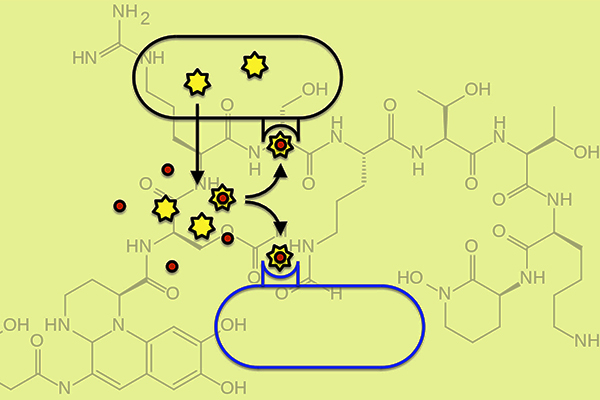
Full Text:
Bacteria are important organisms for evolutionary biology research because their fast growth allows scientists to study evolution in real time in the lab. The common, rod-shaped bacteria in this study, Pseudomonas aeruginosa, can lead to infections in humans, and cheater strains are often found among the infection-causing organisms.
P. aeruginosa uses a peptide siderophore, called pyoverdine (PVD), to scavenge iron, an essential and hard-to-get nutrient; the cheaters don’t produce PVD but have a receptor to collect the iron the siderophore binds with. According to the research, microbes that produce important secretions for use in a community suffer a blow to their own fitness for supplying the non-producing cheater bacteria, but only when production requires the same nutrients that would otherwise go into growth and biomass. One scientist says that this knowledge could be useful in the study of social evolution because every environment is nutrient-limited in some way.Image credit: Oregon State University